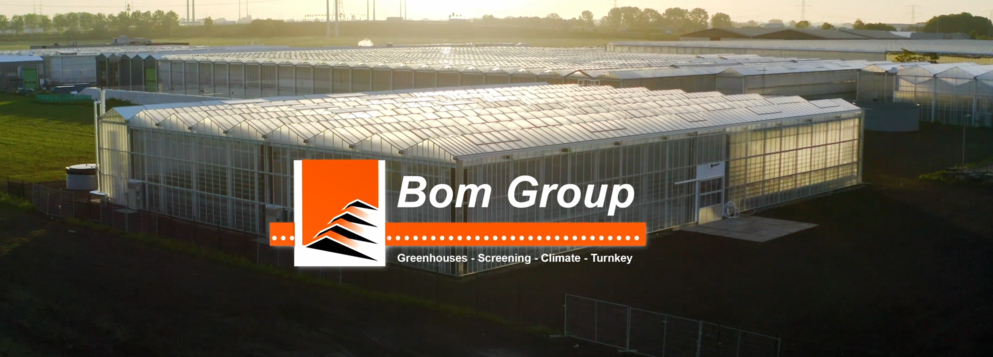
Bom Group proudly presents 'KAS2030'
There are always better solutions for, for example, CO2 emissions or the use of chemical crop protection. But these solutions are rarely all combined in practice. In the 'KAS2030': Sustainable cultivation with a future' the Greenhouse Horticulture Business Unit of Wageningen University & Research combines new technologies in the field of heating, lighting, water, nutrients and intregrated cultivation.
The KAS2030 is located in Bleiswijk. There are four different crops: strawberry, gerbera, freesia and pot anthurium. The progress of these crops is assessed by so-called BCO: research supervisory committee. These BCOs consist of growers of the relevant crops
All-electric
Three themes were leading in the sustainable design of the greenhouse: CO2 emissions, water & nutrients and crop protection. To start with CO2. The greenhouse does not use gas for heating. It is in fact a so-called all-electric greenhouse, including full LED lighting. A heat pump is used to dehumidify the greenhouse. In this wat, latent heat is recovered and the greenhouse remains more closed in winter and spring. No own electricity is generated for the greenhouse; that is purchased
Zero discharge
The greenhouse also does not discharge any drain and condensation water into the sewer. So no nutrients are lost, the water is used optimally and no residues of crop protection agents end up in the sewer. Ozone is used to disinfect the water, so that the water can be reused in cultivation. Finally, crop protection is fully integrated, with as much use as possible of natural enemies.
Growers and researchers can learn in the greenhouse how to grow fossil-free and emission-free. that sounds easier than it is. Every crop still has its own challenges. In practice, for example, the Freesia is a soil crop that - in order to close the watercourse - is grown in a substrate. For example, there are no experiences in these crops with full-LED lighting and active dehumidification is only taking place for the first time.
The 'KAS2030': Sustainable cultivation with a future is funded by the Ministry of Agriculture, Nature and Food Quality in collaboration with the Kas als Energiebron.
Source: Wageningen University & Research
Publicationdate: 21 June 2019
Back to all our news